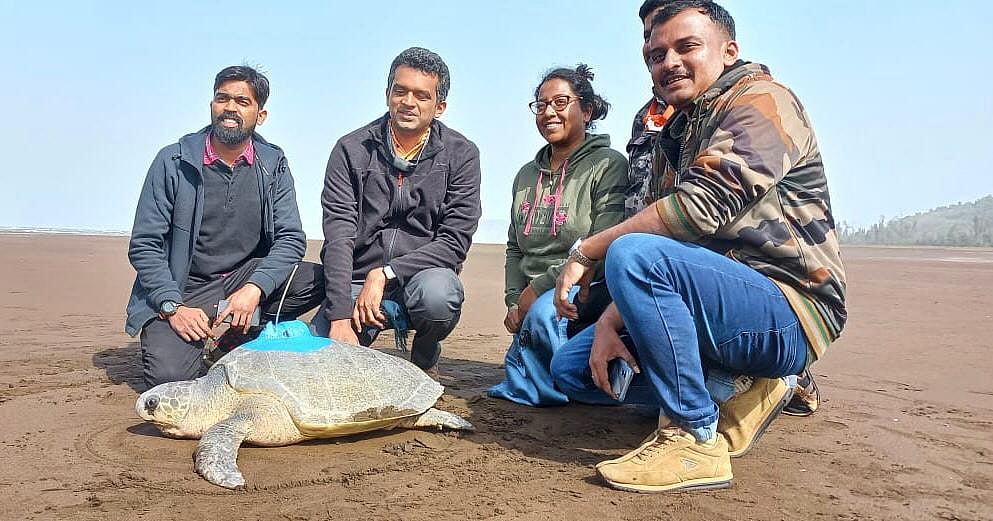Bhubaneswar: At least 48 Olive Ridley turtles, previously fitted with metallic flipper tags, have returned to Odisha’s Rushikulya river mouth in Ganjam district to lay eggs over the past three days, according to officials from the Zoological Survey of India (ZSI).
The tagged turtles were identified as part of an ongoing research initiative aimed at tracking their migration and nesting behavior. “We have recorded around 48 tagged female turtles returning to the Rushikulya rookery during this second phase of mass nesting. This number is expected to increase as the nesting period progresses. Photographs of the tagged turtles have been collected for further analysis, and a comprehensive study will be conducted once the nesting season concludes,” said Dr. Anil Mohapatra, senior scientist, and officer-in-charge at the Estuarine Biology Research Center (EBRC), Regional Center of the ZSI in Gopalpur.
Dr. Mohapatra further noted that in 2023, over 100 tagged turtles were sighted at the Rushikulya river mouth, indicating a strong site fidelity among the species. The ZSI, in collaboration with the Odisha Forest Department, had tagged nearly 3,000 turtles at Rushikulya and Gahirmatha beaches during the 2021 mass nesting season to monitor their movement patterns across the Indian Ocean.
The ongoing arribada, a Spanish term meaning "arrival" that describes the mass nesting phenomenon of Olive Ridley turtles, began its second phase on Saturday. Over the past three days alone, a staggering 1,30,031 turtles have nested along the 5-km stretch from Purunabandh to Bateswar.
"On Monday alone, we recorded 41,731 turtles nesting at the river mouth," said Dibya Shankar Behera, Assistant Conservator of Forests (ACF) for the Khallikote range.
The first phase of mass nesting took place between February 16 and 23, during which approximately 6.98 lakh (698,000) Olive Ridley turtles laid eggs along the Odisha coastline. Experts believe that the high number of returning tagged turtles is a positive sign, indicating the success of conservation efforts in the region.
The Rushikulya rookery, along with Gahirmatha and Devi river mouths, is one of the most significant mass nesting sites for Olive Ridley turtles in the world. Conservationists and researchers are closely monitoring the nesting process, which plays a crucial role in the long-term survival of this vulnerable species.










